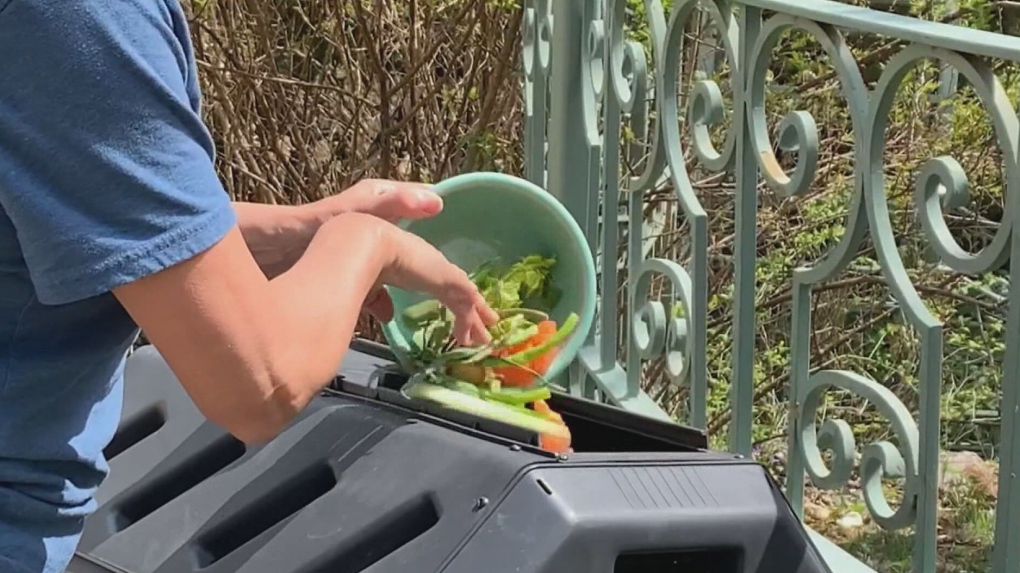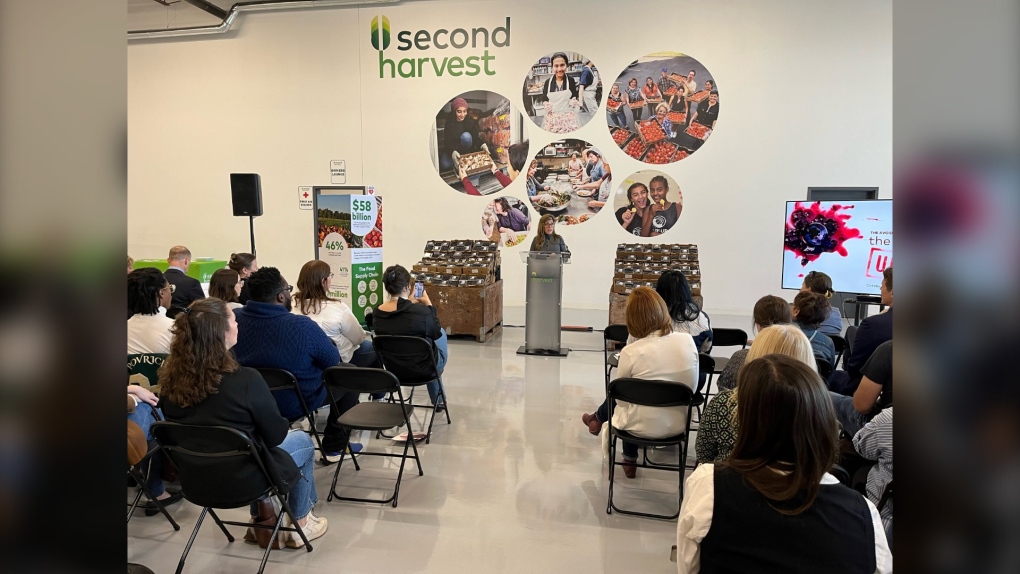Billions of dollars worth of food is being needlessly thrown away each year in Canada, a new report has found.
The report, released by the non-profit group Second Harvest on Tuesday, found that the Canadian food system discards an estimated $58 billion worth of food each year. Of that amount, 41.7 per cent does not need to be tossed.
During a Tuesday morning news conference at the organization’s headquarters in Etobicoke, CEO Lori Nikkel said that the 8.83 million metric tons of food that is being avoidably wasted every year in Canada could be used to feed people in need and is enough to nourish 17 million people three times over.
The research, which was co-authored by Second Harvest and Value Chain Management International (VCMI), showed that while overall food waste is down by 20 per cent in the country since 2019, the amount of avoidable food waste is up by 6.5 per cent.
Best before dates are also a concern, the study found, as they account for almost a quarter of all avoidable food waste. Nikkel said best before dates aren’t about safety, but instead reflect food quality and result in $13.2 billion in wasted food each year.
From an environmental perspective, the report noted that avoidable food waste contributes roughly 25.7 million metric tonnes of carbon dioxide emissions annually or an estimated 253,000 flights from Toronto to Vancouver.
Overall, it showed that almost half of the food produced in Canada and for Canada, including imports – 46.5 per cent to be exact – is being wasted.
 Food waste is shown in this undated file photo.
Food waste is shown in this undated file photo.
Nikkel said the findings shine a light on one of the “most pressing issues of our time: food waste and its deep connection to the affordability crisis we are all witnessing, and many of us are feeling.”
“We find ourselves in a paradox. Food prices are skyrocketing, making it harder than ever for millions of Canadians to put healthy food on their table, yet at the same time, we’re still wasting quantities of perfectly good edible food,” she said.
“The stark contrast between scarcity and waste is not only tragic. It should be unacceptable to everyone, and that’s why this updated research is so crucial.”
Nikkel said it’s more important than ever for Canadians to “understand the full scope of food, where we are wasting it, and why, and right now, during a time when people can least afford to waste it,” and take actions to reduce it.’
She also noted that the $58 billion in food waste being seen in Canada annually is equivalent to the cost of groceries for 3.7 million Canadian families each year and is happening at a time when food banks and other non-profits are struggling to support the record numbers of people experiencing food insecurity across the country.
“It’s not just a matter of saving resources. It’s about making the most of the resources we have. Every pound of avoidable food waste is a missed meal for a family,” she said.
“The research we’re presenting today is more than just numbers. It’s a call to action, action, action. By reducing food waste, we can directly impact food insecurity, help stabilize our environment by lowering greenhouse gas emissions and stretch all of our dollars even further.”
 Second Harvest CEO Lori Nikkel speaks during the Oct. 22 launch of a new report on food waste in Canada. (Kenneth Enlow/CP24)
Second Harvest CEO Lori Nikkel speaks during the Oct. 22 launch of a new report on food waste in Canada. (Kenneth Enlow/CP24)
The release of the report on food waste comes on the heels of the North York Harvest Food Bank issuing an urgent appeal for emergency help after being unable to keep essential items like canned meat, oil, and other protein on its shelves. This Thanksgiving, the organization fell about 75,000 pounds short of its 200,000-pound donation goal.
An estimated 1 in 10 Torontonians are relying on food banks to get by.
Over in Mississauga, that number is 1 in 13.
Second Harvest and VCMI said the findings of the their latest study “underscores the urgent need for comprehensive actions to reduce food waste, especially when food affordability remains a national concern,” adding that the updated research aims to be a “blueprint for a future where food waste is minimized, surplus food is redistributed, and Canadians benefit from a more sustainable and efficient food system.”
They also noted that the intention of this research is to serve as a critical resource for industry, government, and the public in understanding and addressing food waste.
The report was funded by Loblaw Companies Ltd. In compiling it, VCMI surveyed more than 1,000 organizations across the food supply chain. The food waste analysis company also conducted dozens of interviews and held a series of workshops with experts in the food industry as well as researchers, policy allies, people in government, those working through universities and associations, and several food charities.